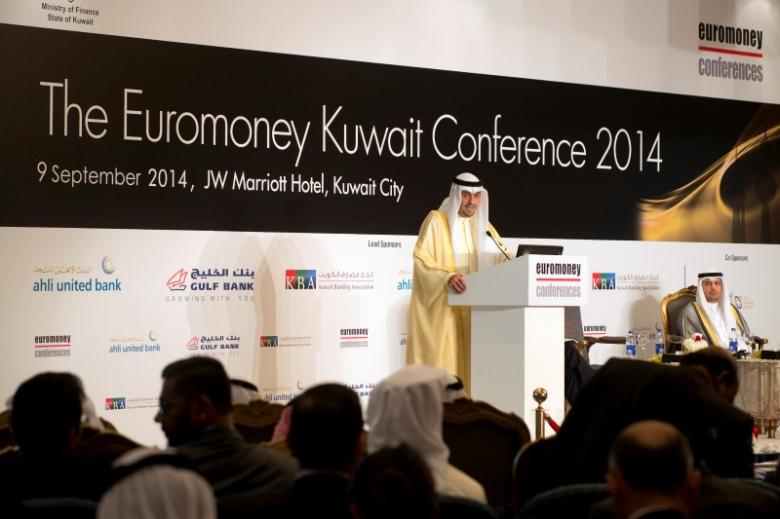London – Demand on Kuwaiti international sovereign bonds underwriting continued to grow, reaching around USD30 billion, following opening the US market.
A source in New York revealed to Asharq Al-Awsat that the issuance value is USD8 billion: USD3.5 billion for a five-year tranche and USD4.5 for a 10-year tranche. He added that the overall demand exceeds USD30 billion.
According to Reuters, the Kuwaiti government has released initial price guidance for its planned debut international bond issue at the wide end of market expectations, which may indicate Kuwait was willing to pay a premium for a very large deal. The government indicated last year that it planned to raise up to USD10 billion through the bond issue.
But as oil prices rebounded in the past few months, some investors thought Kuwait, no longer needing the cash as urgently, might limit the size of the bond in order to obtain a cheap interest rate.
Kuwait’s Minister of Finance Anas al-Saleh said in November that the bond issue will take place in the beginning of 2017, reaching up to USD10 billion (KWD3 billion).
Kuwait’s initial price guidance for its planned five-year tranche, which was set in the 100 basis points over U.S Treasuries area, would put the paper 55 bps above the yield of Abu Dhabi’s five-year 2021 bond in the secondary market.
Kuwait’s planned 10-year tranche, marketed in the 120 bps over Treasuries area, would be 45 bps above Abu Dhabi’s 10-year notes maturing in 2026.
“It’s definitely on the higher end of expectations, but you have to expect the standard tightening of at least 20 bps from the initial price thoughts,” said a fixed income portfolio manager.
Even factoring in a 20-25 bps tightening from initial guidance, the bond would still offer a new issue premium of around 20-30 bps over Abu Dhabi’s five- and 10-year paper.
Abu Dhabi is generally seen as the gold-standard credit in the Gulf region, and Kuwait marketed itself as “the new Abu Dhabi” when it met fixed income investors in London and the US last week, investors said.
Citi, Deutsche Bank, HSBC, JP Morgan, NBK Capital and Standard Chartered Bank are the book runners.
